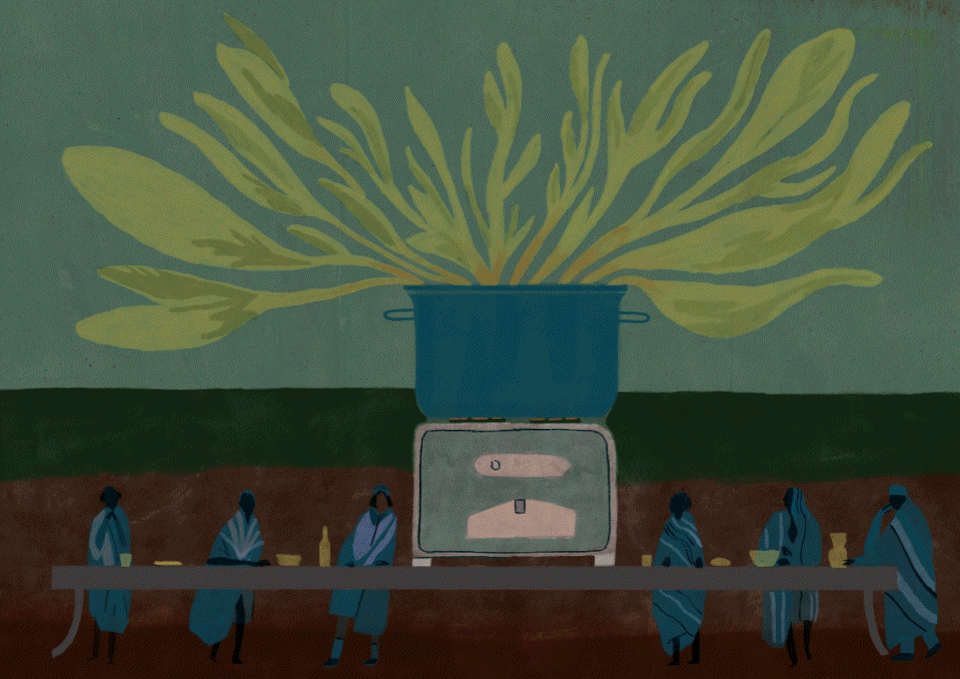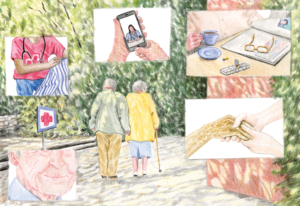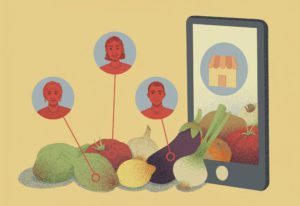
Pau Gasol
Description
BURN provides energy-efficient stoves in Kenya, promoting sustainable cooking. The stoves ensure that our users are less likely to get health complications from smoke, significantly reduce their spending on fuel, all while combating deforestation. They deliver all parts of the cookstove value chain – from product design and manufacturing at our solar-powered facilities in Nairobi, to carbon credit issuance and sale.
By empowering communities with cleaner and healthier cooking solutions, BURN contribute to environmental conservation and social development in Kenya.
Context
BURN stoves serve several social and organisational needs, making them an impactful and relevant solution for the community. Some of the key aspects highlighting the significance of our stoves are:
- Environmental Sustainability: Kenya faces significant environmental challenges with over 80% of the population relying on biomass as the primary source of energy for cooking and heating according to data from the Kenya Kenya Household Cooking Sector Study 2019. Our energy-efficient biomass stoves, address this concern by reducing fuel consumption. The Jikokoa reduces charcoal consumption by ~60% and the Kuniokoa uses 71% less wood, leading to a decrease in deforestation and a substantial cut in CO2 emissions. By promoting cleaner and more sustainable cooking practices, our stoves contribute to the country’s environmental conservation efforts.
- Health Improvement: Traditional stoves produce a large amount of indoor air pollution, resulting in respiratory issues, especially for women and children who spend more time near the cooking area. Our stoves are designed to minimise indoor CO2 emissions by 80%, with 98% of our customers reporting less indoor smoke. Independent randomised control trial data shows a 0.5 SD improvement in self-reported health outcomes from our customers.
- Economic Empowerment: Both our Jikokoa and Kuniokoa stoves have allowed Kenyan families to save over $2 on fuel costs every week. The stoves also offer an IRR of 295%. These savings can be redirected to meet other essential needs, such as education, healthcare, and small investments. Additionally, BURN has created job opportunities for over 1,500 locals, thus contributing to local economic development and empowerment.
- Social Equality: In many communities, women and girls are primarily responsible for cooking. The time-consuming and labour-intensive nature of traditional stoves often hinders their participation in education and other economic activities. When using our stoves, 93% of our customers now say they spend less time cooking, liberating them from these burdens and promoting gender equality. BURN also ensures that more than 50% of its 1,500 local-work force is made up of women, thus fostering its mission for empowering the women in Kenya.
- Climate Change Mitigation: Since 2013, our stoves have reduced 7M tonnes of CO2 emissions and saved 4M tonnes of wood. This contributes to Kenya’s commitment to combat climate change and achieve its sustainable development goals. As a company, they align with global efforts to reduce greenhouse gas emissions, supporting the international community’s fight against climate change.
Furthermore, our stoves address the growing concern among stakeholders, including consumers, investors, and employees, regarding corporate social responsibility (CSR). These sentiments reflect a big part of the culture at BURN.
Technical details & Operations
Our stoves are designed using a combination of innovative technology, quality materials, and user-focused R&D to ensure maximum efficiency and positive social impact. These stoves address the inefficiencies of traditional cooking methods and promote sustainable, cleaner, and healthier cooking practices. Below are the key components of our solution:
- Energy-Efficient Stoves: The core of our solution is the production and distribution of energy-efficient stoves. Our stoves are designed to optimize fuel consumption and heat transfer, reducing cooking time, fuel usage, and smoke emitted during cooking compared to any other stove in the market. They are manufactured locally, at our solar powered facilities in Ruiru, Nairobi. Through carbon financing, BURN can reduce the price of our stoves by up to 95%. This makes the stoves affordable and accessible to a wide range of households in Kenya. Our stoves also offer long-term sustainability by having the highest cookstove lifetime of 5-7 years for charcoal stoves.
- Improved Combustion Technology: Our stoves incorporate improved combustion technology that enhances the burning process, leading to a more complete and efficient combustion of charcoal and wood. This ensures that less fuel is wasted, and indoor air pollution (PM2.5) is reduced by up to 80%.
- Insulation and Heat Retention: Our stoves have a conical shaped combustion chamber that minimises heat loss during cooking, ensuring that the generated heat is directed towards the cooking pot. This significantly improves cooking efficiency and reduces the overall fuel consumption by 64% for Jikokoa and 71% for Kuniokoa. Our customers have reported a high net promoter score of 90. This shows how satisfied our customers are when using our stoves.
- Distribution and After-Sales Services: Project leaders have established a well-organised distribution network in collaboration with local partners, NGOs, and government agencies. This network ensures that the stoves are easily accessible even in remote areas, reaching households in need. Additionally, we offer after-sales services, including maintenance support, to ensure the continued efficiency and longevity of the stoves.
- Impact Monitoring and Feedback Loop: To measure the effectiveness of our stoves, we implement a robust impact monitoring system. We have in place high quality monitoring which utilises on-site data collection with cloud-based data capture technology. Data on fuel savings, emissions reduction, health improvements, and other social indicators are collected and analysed regularly. Also, since we manufacture locally, user feedback is often solicited, enabling us to make necessary improvements and iterate on the design and distribution strategy.
Deployment & Impact
The social impact of our stoves in Kenya has been profound, addressing critical challenges and positively influencing the lives of over 3M Kenyans across the country. The deployment and adoption of our stoves has been carefully planned and executed, resulting in a significant and measurable social impact.
- Health Benefits: Our stoves have led to a substantial reduction in indoor air pollution. The use of our stoves has resulted in a 0.5 SD improvement in self-reported health outcomes, particularly for women and children who are most affected by traditional cooking methods. 98% of our customers report that there’s less indoor smoke while using our stoves.
- Environmental Conservation: Since 2013, we’ve distributed over 800,000 stoves and have been able to reduce 7M tons of CO2 emissions. We’ve also saved 4M tons of wood. Families now consume less fuel, as our stoves require smaller amounts for cooking. As a result, fewer trees are being cut down for charcoal and firewood, contributing to the preservation of Kenya’s valuable forests and biodiversity.
- Empowerment of Women: In many Kenyan communities, women are responsible for cooking and collecting firewood. 93% of our customers now spend less time cooking and this has empowered them to engage in income-generating activities, pursue education, and actively participate in community development initiatives. This shift has sparked positive social change, leading to greater gender equality within households and communities. Also, as a company, we are intentional about attracting and creating opportunities for females in the industry. Our workforce comprises 2000 employees, half of whom are women.
- Economic Savings: Families using our stoves save more than $2 per week on fuel expenses and the IRR for purchasing our stoves is 295%. Our stoves also have a net benefit of $1,000 to society over a period of 3 years. This has allowed our customers to redirect funds to other essential needs, such as education, healthcare, and investments, contributing to poverty alleviation and economic stability.
BURN projects contribute to eight of the UN’s Sustainable Development Goals (SDGs):
- SDG 1 – No poverty
- SDG 3 – Good health and wellbeing
- SDG 4 – Quality education
- SDG 5 – Gender equality
- SDG 7 – Affordable and clean energy
- SDG 8 – Decent work and economic growth
- SDG 13 – Climate action
- SDG 15 – Life on land
The deployment of our stoves involved a multifaceted approach:
- Research and Development: Prior to introducing the stoves to the market, our team conducted extensive research to design stoves that suits the cooking needs and cultural preferences of Kenyan households. Presently, because we manufacture in Kenya, the R&D team can get and respond quickly to customer feedback concerning the stoves.
- Manufacturing and Distribution: The stoves were manufactured locally at our solar-powered facilities in Nairobi. We’ve created employment opportunities for over 1,500 locals, of whom 50% are women. Our distribution network is established in collaboration with local partners, NGOs, and government agencies to ensure efficient and widespread access of the stoves, even in remote areas.
- Awareness and Training: We conducted awareness campaigns to educate communities about the benefits of energy-efficient stoves and proper usage techniques.
This solution was supported by Yunus Social Business





